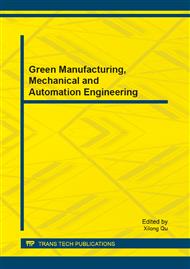p.240
p.245
p.250
p.255
p.259
p.264
p.268
p.273
p.277
Research on Humanity in Development of Electrical Engineering
Abstract:
To study the value of humanity in the development of electrical engineering, the paper initially explores the role of humanity in electrical engineering, holding that humanity is the reason why electrical engineering strives for and the object that electrical engineering focuses on. About the advantages of humanity in electrical engineering, the paper considers that humanity will do good to electrical engineers, electrical engineers, electrical enterprises as well as the harmony of society. To guarantee the charm of humanity in electrical engineering, the paper confirms the necessity of obtaining teachings from traditions, acquiring experiences from other countries and learning lessons from mistakes. Briefly, humanity is a key to the development of electrical engineering and its value cannot be ignored.
Info:
Periodical:
Pages:
259-263
DOI:
Citation:
Online since:
July 2013
Authors:
Keywords:
Price:
Сopyright:
© 2013 Trans Tech Publications Ltd. All Rights Reserved
Share:
Citation:


